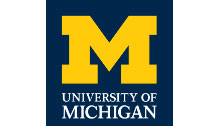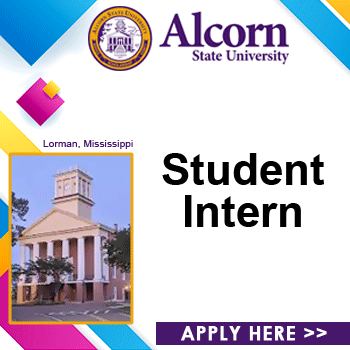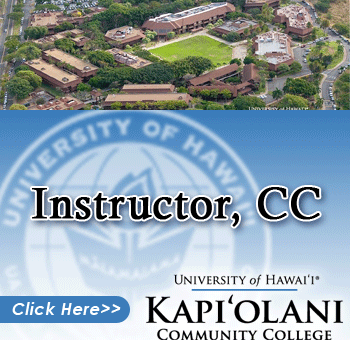
GSI - COGSCI 200 (Winter 2025)
Job Description
How to Apply
Applicants must apply and submit material through https://careers.umich.edu/. Please, include the following in a single PDF document:
1) A cover letter addressing interest and qualifications for the course(s) and the hours of availability for discussion sections as listed here.
2) A resume or curriculum vita
3) Unofficial graduate and undergraduate transcripts of relevant course work
4) Previous UM teaching evaluations or teaching history, as applicable
Job Summary
The Weinberg Institute for Cognitive Science is looking to hire up to 4 GSIs in the Winter 2025 term to lead discussion sections in the following course:
COGSCI 200, 3 sections (anticipated enrollment: 75 students)
Course Description
The goal of this course is to provide an integrated overview of some of the major approaches to understanding the mind and brain; approaches that together constitute contemporary cognitive science. The problems associated with understanding how and why our minds work the way they do are some of the deepest, most important and most complex facing science, and no single discipline can lay claim to privileged status when it comes to making progress. Indeed, much of the recent excitement in the field has come from approaches that draw on the ideas and methods of multiple disciplines. In this course you will get a taste of some of that excitement.
The ideas and methods represented here include those drawn from empirical psychology, linguistics, philosophy, computer science and artificial intelligence, neuroscience, behavioral economics, ethology, and evolutionary biology. Rather than treat each approach separately, we focus on a set of relatively independent topics, each of which engages several of these approaches.
The topics span learning, perception, language, decision making, memory, emotion, morality and happiness. Each time we visit a topic, we will ask: What theoretical issues are at stake? How are they being addressed? What are the key ideas? What are the basic phenomena, how were they discovered, and what counts as an explanation of them? We will start with topics that illustrate some of the fundamental ideas and then branch out from there. The aim is to arrive at an overview of the big ideas of cognitive science; the theoretical principles that constitute our current understanding of how our minds work.
Responsibilities*
Required Qualifications*
Desired Qualifications*
Modes of Work
Positions that are eligible for hybrid or mobile/remote work mode are at the discretion of the hiring department. Work agreements are reviewed annually at a minimum and are subject to change at any time, and for any reason, throughout the course of employment. Learn more about the work modes.
Contact Information
Decision Making Process
Weinberg Institute staff and the course instructor will review applications. The course instructor will make final decisions about hiring.
Selection Process
Applications are reviewed, and decisions made, based on each applicants knowledge, experience, and past teaching record. Preferential consideration will be given to applicants with relevant academic preparation for teaching the course material.
GEO Contract Information
The University will not discriminate against any applicant for employment because of race, creed, color, religion, national origin, ancestry, genetic information, marital status, familial status, parental status or pregnancy status, sex, gender identity or expression (whether actual or perceived), sexual orientation, age, height, weight, disability, citizenship status, veteran status, HIV antibody status, political belief, membership in any social or political organization, participation in a grievance or complaint whether formal or informal, medical conditions including those related to pregnancy, childbirth and breastfeeding, arrest record, or any other factor where the item in question will not interfere with job performance and where the employee is otherwise qualified. The University of Michigan agrees to abide by the protections afforded employees with disabilities as outlined in the rules and regulations which implement Section 504 of the Rehabilitation Act of 1973 and the Americans with Disabilities Act.
Information for the Office for Institutional Equity may be found at https://oie.umich.edu/ and for the University Ombuds at https://ombuds.umich.edu/
Unsuccessful applications will be retained for consideration in the event that there are last minute openings for available positions. In the event that an employee does not receive their preferred assignment, they can request a written explanation or an in-person interview with the hiring agents(s) to be scheduled at a mutually agreed upon time.
This position, as posted, is subject to a collective bargaining agreement between the Regents of the University of Michigan and the Graduate Employees' Organization, American Federation of Teachers, AFL-CIO 3550.
Standard Practice Guide 601.38, Required Disclosure of Felony Charges and/or Felony Convictions applies to all Graduate Student Assistants (GSAs). SPG 601.38 may be accessed online at https://spg.umich.edu/policy/601.38 , and its relation to your employment can be found in MOU 10 of your employment contract.
U-M EEO/AA Statement
The University of Michigan is an equal opportunity/affirmative action employer.
*Please mention you saw this ad on NativeAmericansInHigherEducation.*





